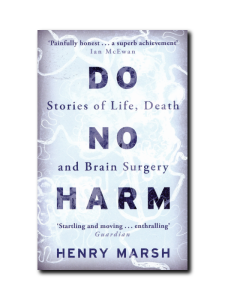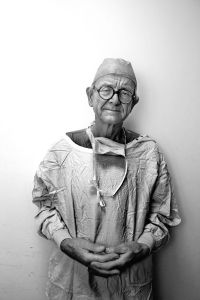
We doctors, are suspended in a strange state of limbo. Gone are the days when consultants treated patients like minions who had to accept their judgment without questions. Also are bygone the days, when concoctions from bottles of various sizes were mixed together and passed on as panaceas for all ailments. The compounder who would dutifully carry the doctor’s bag and keep the clinic running like clockwork is also, now an extinct species.
We are now in an era where hospitals are treated like business with business models, plans, huge glassed buildings and air conditioned offices. The targets they have to meet to get such a huge gargantuan venture going, loom large in front of the doctors.
The reason we are in a limbo is probably this- that at heart we are still pompous old world people who believe in our skills and dealing with a patient who does not believe in it brings us crashing down to reality!
A lot of patients now behave as though they have come to a hospital for a business transaction. They give us money and we give them health. When the deal works well, everything is hunky dory, but when things go awry, the doctor bears the brunt of it. And how. He is beaten up, the hospital is ransacked and the staff are manhandled, before the good old police finally reach the scene.
In such a scenario, it is not strange that doctors develop a defensive attitude of not accepting our mistakes. And mistakes do happen. After all we are humans. Only, we deal with other humans!
Though treatment procedures have been standardized for years, first in the lab, then on hapless animals and then tried on humans to prevent any mishaps, we know that patients react differently to different drugs. At least 1 in 10 patients and their illness does not behave as obediently as we expect. According to a study in Australia, about 18000 deaths occur in a year due to medical errors! A lot of times the body plays tricks on us. Placing red herrings, leading us on a merry path to a destination, which is exactly at the opposite end of where we want to be. We have to start afresh then. Slightly more cautious and worried. And rarely, it does happen that we mess up bad. And it does end in the patient’s demise. A valuable but a very sad lesson.
Unfortunately, in our profession, accepting our mistake is taken as a sure fire sign of guilt. We only have the freedom to accept our mistakes when we are doing our residency, when the worst we have to face for this is the wrath of our teacher.
Therefore, when I read “Do No Harm”, by Henry Marsh, a neuro surgeon from Britain, I enjoyed it immensely.
First, because it acknowledges that we as doctors are human and need to get it into our head that failures do happen. He has portrayed himself as genuinely as possible. That, at times, he is guilty of losing his temper, sometimes his decisions have been made by how tired he was or how the weather was behaving! This admission according to me, was extraordinarily brave. l have made some purely selfish decisions, but till date ,have great difficulty in acknowledging it! It is always easier to defend myself. And hence, the greatness of this man, who has actually put it on paper.
Secondly, the book also gives us examples of the times when things do not go as expected. The moral being- catharte, accept, console, move on- but do not forget for next time!
Thirdly, that vice versa can also happen. Those whom we expect the worst to happen, go on to outlive their children and we end up being at the end of condescending glares and living room gossip. So to learn to communicate the truth, but not to give out ultimatums. Instead, to be gentle and as hopeful as possible.
Lastly, but most importantly, the book gives us insights about knowing when to stop our work and accept that nature has to take its course. As doctors we sometimes get carried away by the drama of keeping the patient alive by all means. But the consequences of such survival may be more of a burden than help. Like when the operation is a success, but the patient ends up in coma for years. The relatives are at a loss financially, emotionally and unable to take a decision about the future!
Do no harm is a book which deals with such difficult questions and circumstances which every doctor faces but is unable to voice out. It is honest, upsetting sometimes, but definitely re assuring for two reasons.
One because, it gives a sense of solace that the dilemmas shared by doctors all over, are not unique.
Two, because come what may, being honest with the patient and family, brings alive a bond akin to what was present eons ago- a sense of understanding, and a trust level which allows for acceptance even if we inadvertently harm their dear ones.
How I wish this book was a part of my medical school reading!
